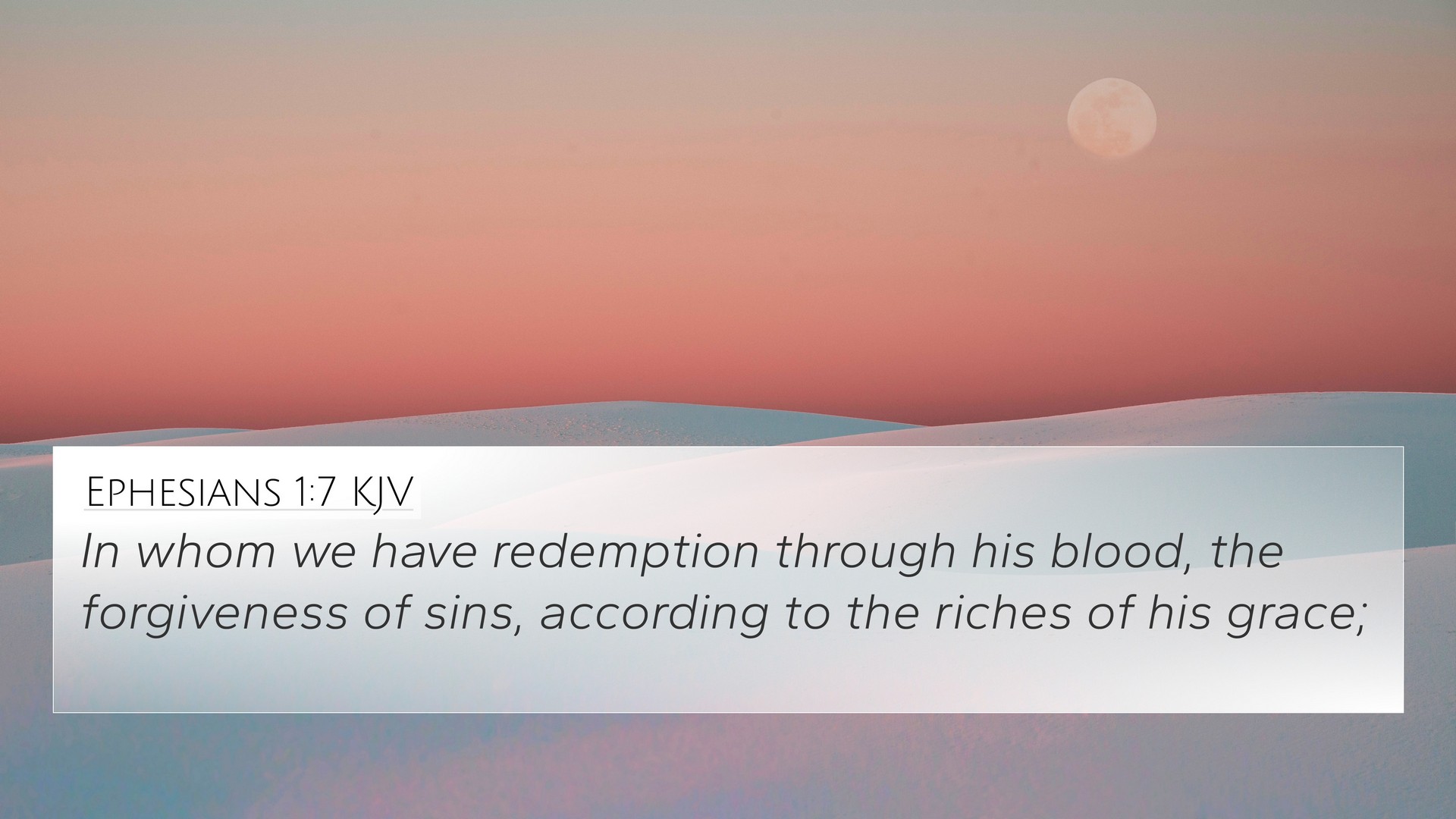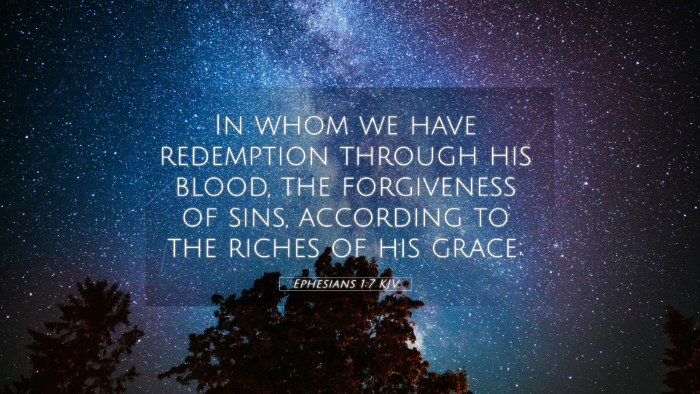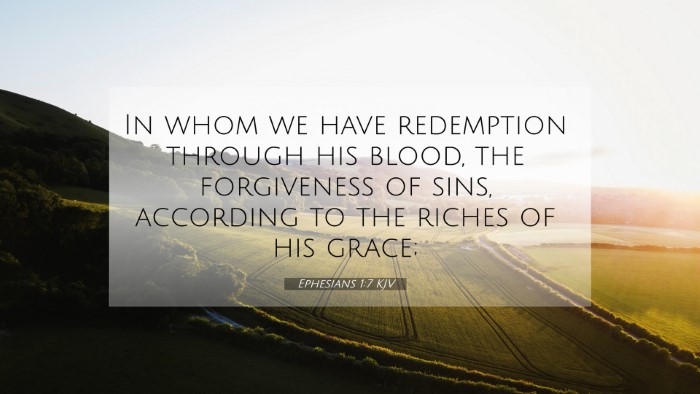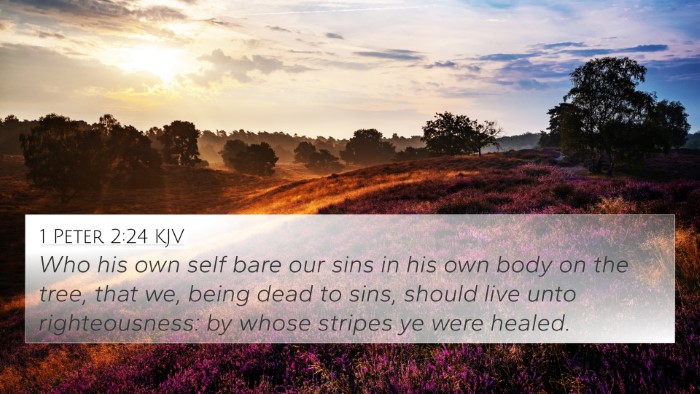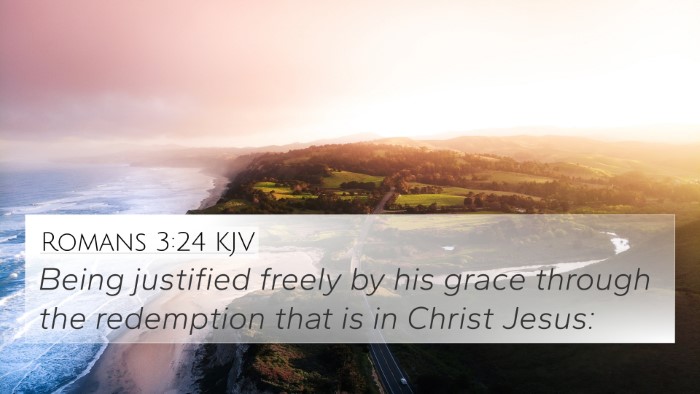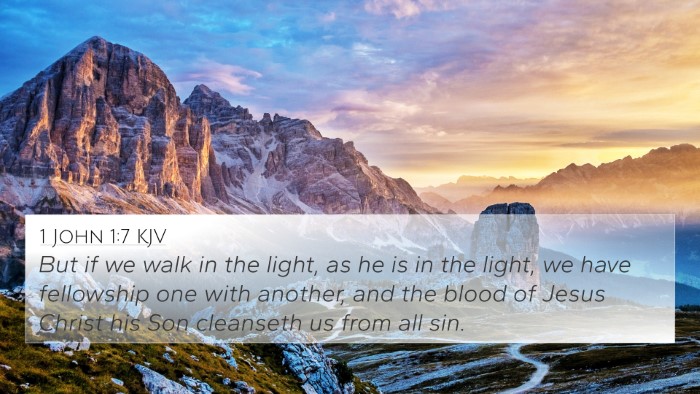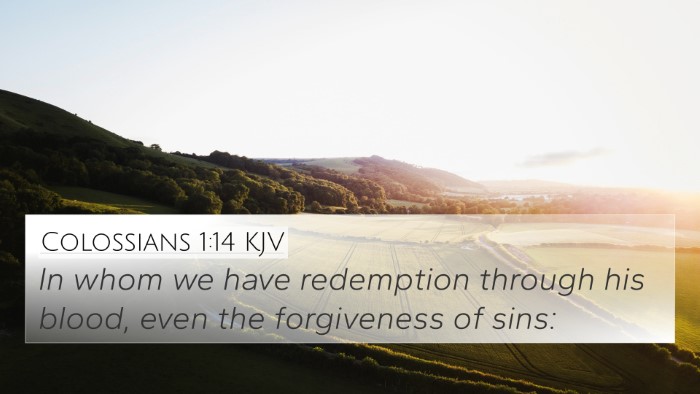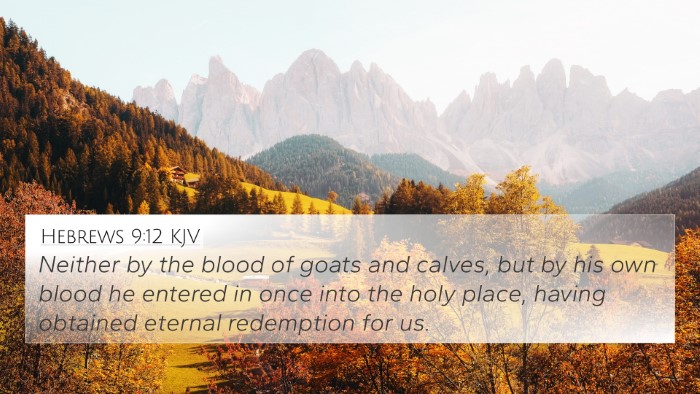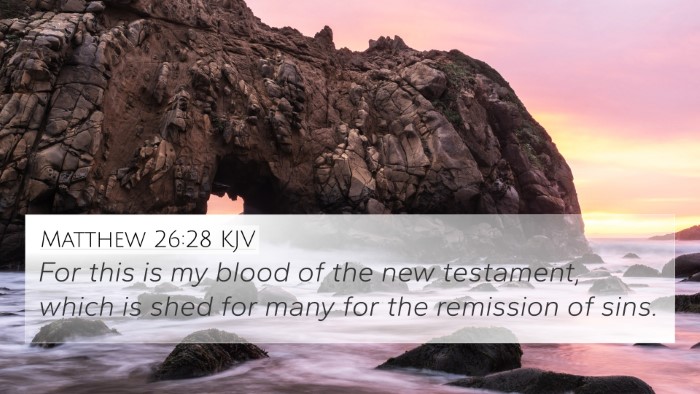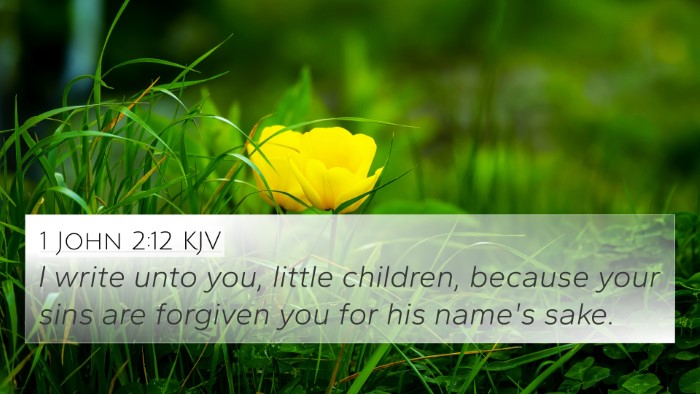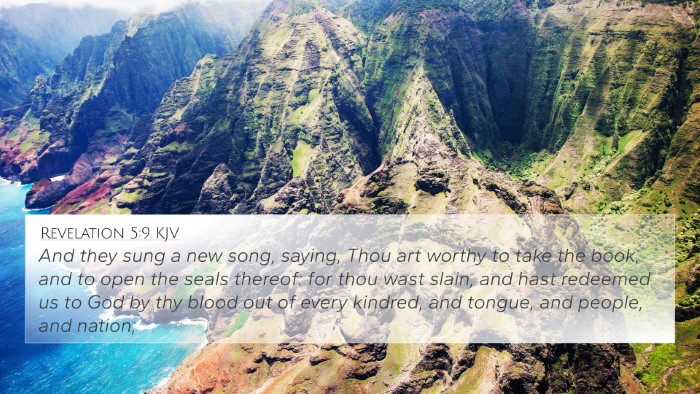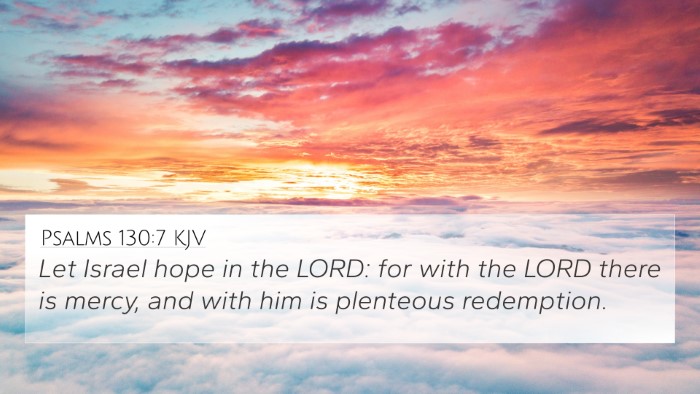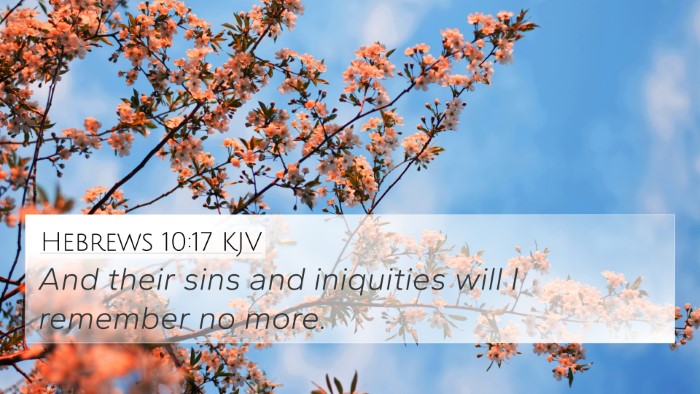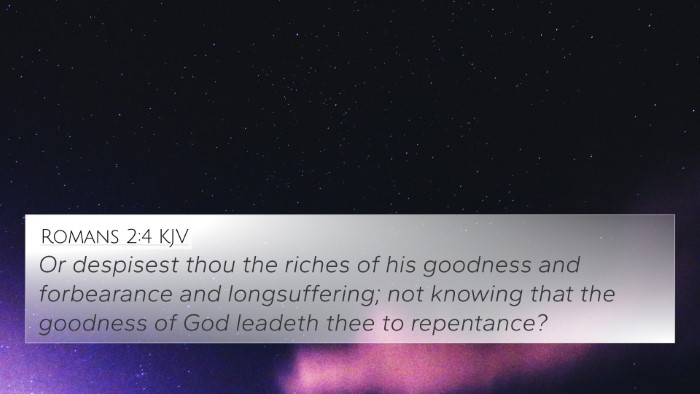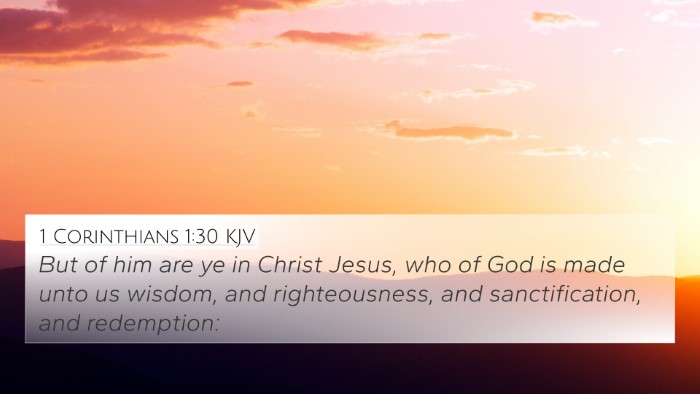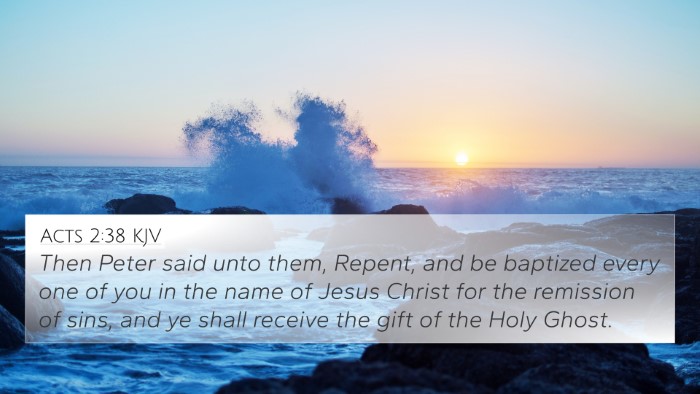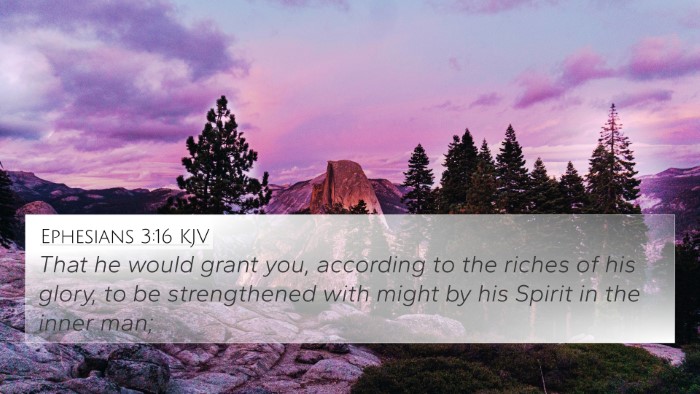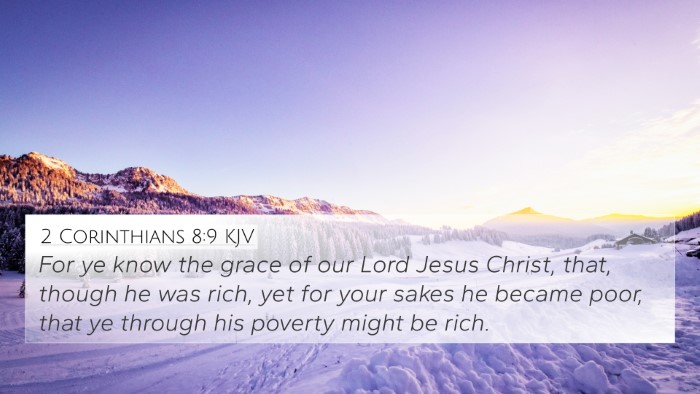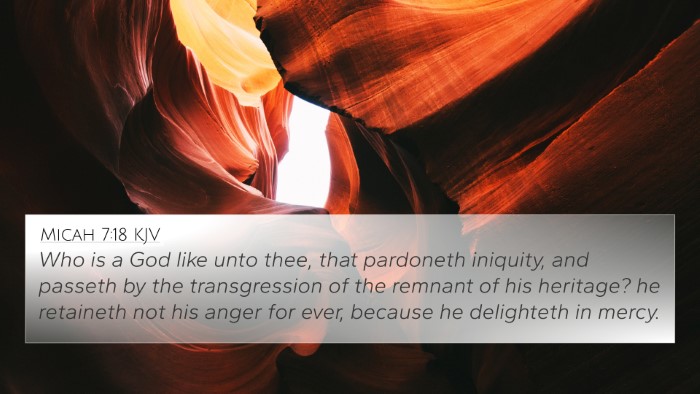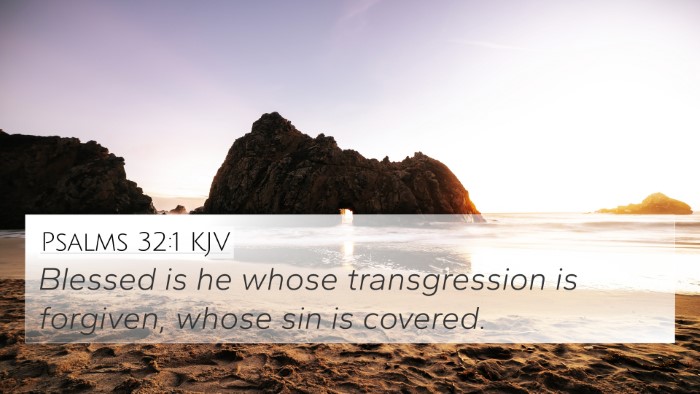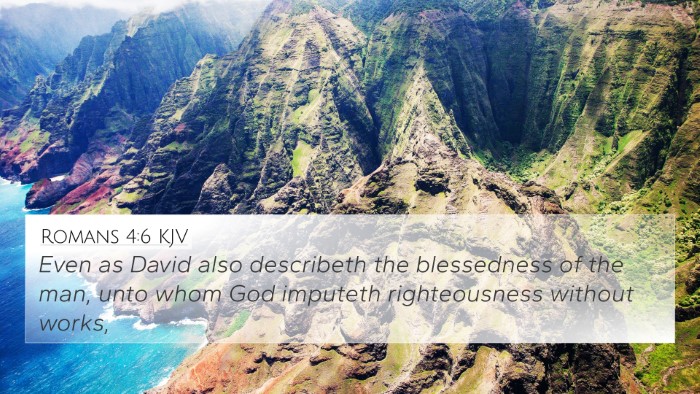Ephesians 1:7 - Meaning and Interpretation
Verse: "In whom we have redemption through his blood, the forgiveness of sins, according to the riches of his grace;" (Ephesians 1:7, KJV)
Overview of Ephesians 1:7
The Apostle Paul, in Ephesians 1:7, emphasizes the profound theological truths surrounding redemption, grace, and forgiveness available through Christ. This verse underscores the centrality of Christ’s sacrificial death, through which believers gain immense spiritual benefits.
Key Themes
- Redemption: The concept of being redeemed signifies deliverance from bondage; in this context, believers are freed from sin's penalty.
- Forgiveness of Sins: The relationship between redemption and forgiveness is crucial, as through Christ’s sacrifice, God pardons believers.
- Riches of His Grace: This phrase denotes the abundance of God’s grace, reflecting His generosity and willingness to forgive.
Bible Cross-References
Understanding Ephesians 1:7 can be enriched by cross-referencing with the following Bible verses:
- Colossians 1:14: "In whom we have redemption through his blood, even the forgiveness of sins." This verse parallels Ephesians 1:7, reinforcing the theme of redemption through Jesus's sacrifice.
- Romans 3:24: "Being justified freely by his grace through the redemption that is in Christ Jesus." This connection highlights justification as a component of redemption.
- 1 Peter 1:18-19: "Forasmuch as ye know that ye were not redeemed with corruptible things, as silver and gold... But with the precious blood of Christ." This emphasizes the cost of redemption.
- Romans 5:8: "But God commendeth his love toward us, in that, while we were yet sinners, Christ died for us." This illustrates the unconditional love manifest in redemption.
- Ephesians 2:8-9: "For by grace are ye saved through faith; and that not of yourselves: it is the gift of God." This links grace with salvation, tying back to the riches of His grace in Ephesians 1:7.
- Hebrews 9:22: "And almost all things are by the law purged with blood; and without shedding of blood is no remission." This establishes the necessity of Christ’s sacrificial blood for forgiveness.
- Revelation 1:5: "And from Jesus Christ, who is the faithful witness, and the first begotten of the dead, and the prince of the kings of the earth. Unto him that loved us, and washed us from our sins in his own blood." This emphasizes the impact of Christ's blood in our redemption.
Comparative Bible Verse Analysis
This verse engages in a dialogue with various other scriptures that illuminate its meaning. The connections show that grace and redemption are constant themes in both the Old and New Testaments.
Connections with Other Biblical Texts
Examining the rich tapestry of scripture, we observe that:
- Old Testament Sacrificial System: The need for blood atonement (Leviticus 17:11) foreshadows the ultimate sacrifice Jesus made.
- Psalm 130:4: "But there is forgiveness with thee, that thou mayest be feared." This verse highlights the mercy of God in granting forgiveness.
Tools for Bible Cross-Referencing
To delve deeper into scripture, tools such as a Bible Concordance or a Bible Cross-Reference Guide are invaluable for identifying relationships between verses.
Practical Application of Cross-Referencing
When studying how to use Bible cross-references, consider using:
- Bible Chain References: Following themes or topics throughout the scriptures.
- Cross-Referencing Bible Study Methods: Engaging with multiple texts to understand broader theological implications.
Conclusion
In conclusion, Ephesians 1:7 provides rich theological insight into redemption, grace, and forgiveness. By examining it alongside other scriptures, one can gain a nuanced understanding of these pivotal concepts in the Christian faith. Utilizing tools for cross-referencing allows believers to explore the scriptures more deeply and understand the interconnectedness of biblical themes.
Final Reflection: As we study Ephesians 1:7 and its cross-references, we deepen our comprehension of the grace that God extends to us through Christ, celebrating the freedom from sin’s bondage.
